Fall 2025 Courses
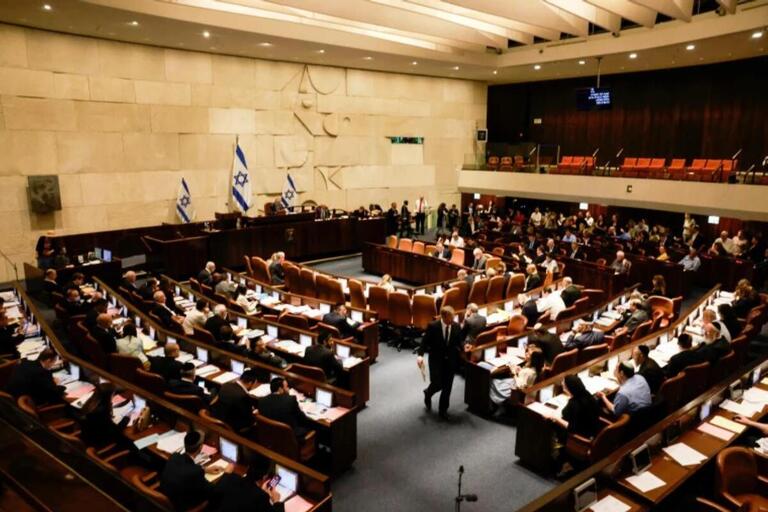
Comparative Constitutional Law: The Case of Israel
Professor Ayelet Blecher-Prigat
This course introduces key issues in constitutional law and theory, using a comparative perspective with a focus on the Israeli constitutional system. The course will explore topics such as the principles and controversies surrounding judicial review, the evolution of Israeli constitutionalism, the interpretation and application of fundamental rights like equality, privacy, and freedom of religion. By examining these issues through a comparative perspective, students will develop critical thinking skills and a deeper appreciation for the role of constitutional frameworks in addressing complex societal debates. The course also offers insights into challenges that mirror those faced in the United States, particularly regarding the respective roles of the judiciary, the legislature, and the constitution in resolving divisive issues.
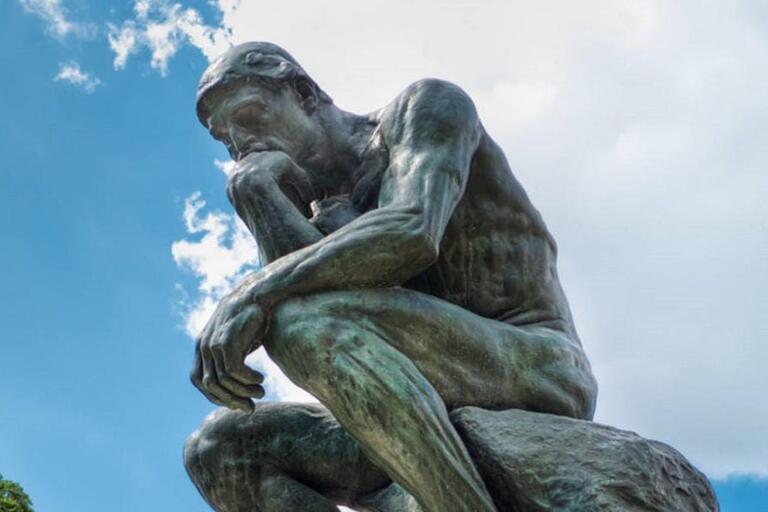
In Search of Lost Time: Memory in Legal Principle and Practice
Professor Daniel Levy
Human memory plays a key role in legal thought, institutions, and procedures. In a wide range of circumstances – evaluating the reliability of testimony, appreciating challenges to judges and jurors in learning and retaining information presented during a trial, assessing intent and culpability for plagiarism, or considering the admissibility of a plaintiff’s repressed memories – assumptions about the nature of memory play a vital role. For each topic, the relevant basic cognitive psychology and neuroscience information will be introduced in non-specialist terms. We will then consider the implications of those insights for philosophical attitudes, legal processes, and societal institutions, including memory in restorative justice, and collective memory in public spaces and monuments.
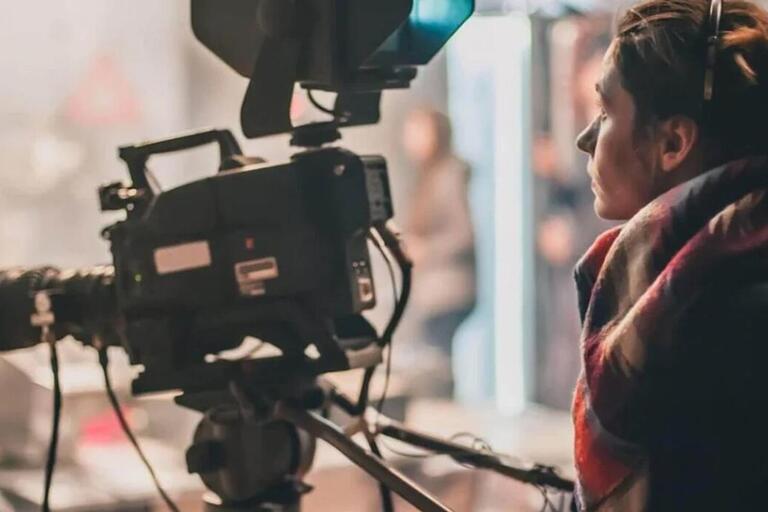
Global Cinema: Israeli Cinema and Media Cultures
Professor Aner Preminger
This course will examine the evolution of Israeli cinema in the context of global cinema history and Israeli culture. In the global context, we will discuss the nature of the interaction between Israeli cinematic developments and cinematic developments worldwide. In the domestic context, we will explore Israeli cinema as a mirror reflecting social and political developments within Israeli society and as a source of influence on Israeli culture and society. Beginning with the 1960s and the introduction of modernism into Israeli cinema, we will focus on film images and narratives that grapple with the paradoxes of a polarized society in search of its identity, including the perception and representation of marginalized communities, particularly women, ethnic minorities, and Palestinian citizens of Israel. We will also examine representations within Israeli films of Palestinians in the West Bank and Gaza and Arab citizens of other countries.

Digital Cinema Production: Wo.man with a Movie Camera
Professor Aner Preminger
This course examines the space between reality and fiction, the personal and the public, and the intimate and the social—exploring how cinema captures society through the lens of the personal camera. We will engage with modernist cinema and the private self through the work of Soviet filmmaker Dziga Vertov, French filmmakers Jean Rouch and Edgar Morin, and Israeli filmmaker David Perlov. Special focus will be given to the individual "I" as expressed through Perlov’s cinematic voice and vision, tracing the evolution of the personal film diary and its contemporary possibilities in the age of the iPhone camera.

Pack Light: Traversing Translation & Hebrew Literature
Professor Yael Segalovitz
In this course, we’ll trace the footprints of literary translation—the cultural, geo-political, theological, and linguistic knowledge embedded in every utterance we produce, and the acute challenges that arise when carrying these elements across languages. We’ll tackle questions like: How should a translator handle an idiom with no equivalent in the target language (like “barking up the wrong tree”)? Is a translation’s job to capture the original’s unique flavor or to read smoothly to its new audience? And what’s the experience of reading someone else’s words filtered through a translator’s sensibility? Hebrew literature—born from a people in constant movement and containing echoes of multiple languages—presents a particularly fertile ground for exploring translation.
We will engage in hands-on translation exercises accommodating students with or without second language proficiency. Some of the writers and thinkers we will be discussing will join us for live class discussions! Translation, as many who practice it will tell you, is reading at its most intense. By semester’s end, you’ll not only better understand the intricacies of translation and gain insights into modern Hebrew literature but also sharpen analytical skills that extend far beyond this course. Bring your passport—we’ll be crossing linguistic borders together.

How Modernity Shaped the Landscape: East, West, and the Cities of Israel/Palestine
Professor Noah Hysler Rubin
The multifaceted landscape of Israel/Palestine—its land and its people—has been shaped by processes of global modernization and Western colonial rivalry. As a result, the region’s urban and physical environments bear the imprint of pivotal political, economic, and cultural forces: from the late Ottoman Empire and the height of British imperialism to the rise of both Zionism and Arab nationalism, culminating in the establishment of the State of Israel.
This course approaches modernization and modernity as theoretical frameworks that not only illuminate the development of the Israeli/Palestinian city but also offer critical tools for understanding the broader patterns of Western urban transformation in the modern era. Through this lens, we will interrogate conventional dichotomies—East/West, Old/New, Traditional/Modern, Progressive/Backwards—as they appear in the local context. These categories will serve as analytical entry points into the geography of the region.
Our exploration will uncover a diverse array of modernities—Palestinian, Ottoman, British, Zionist, and Israeli—whose spatial legacies overlap, converge, and at times, stand in stark contradiction. Together, they form a complex and contested urban fabric that reflects the ongoing negotiation of identity, power, and place.
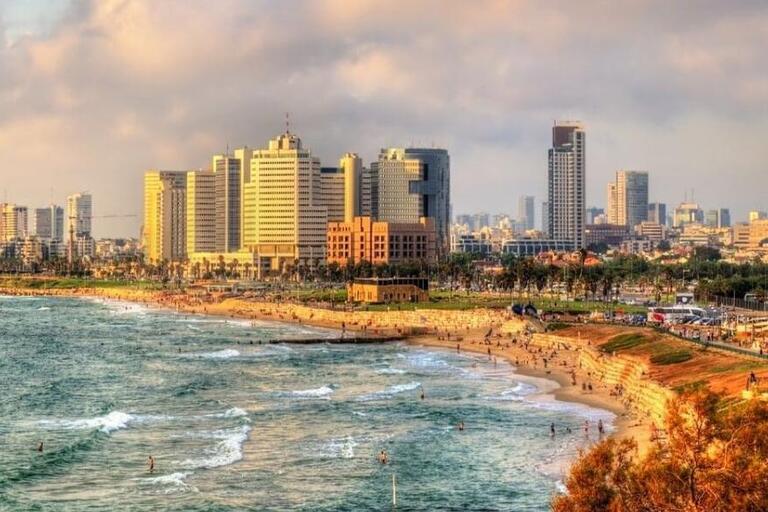
History and Sociology of Modern Israel
Professor Yifat Moas
In recent years—and especially since the October 7th massacre and the subsequent war between Israel and Hamas—global discourse around Israel has become increasingly polarized, often reduced to simplistic labels of "pro-" or "anti-" Israel. Yet many remain unfamiliar with the complex history and social fabric of the country. This course surveys the historical events, social transformations, and cultural dynamics that have shaped Israeli society—from the emergence of the Zionist movement and the founding of the state to the present day—offering students a multidimensional understanding of Israel in both historical and contemporary contexts.
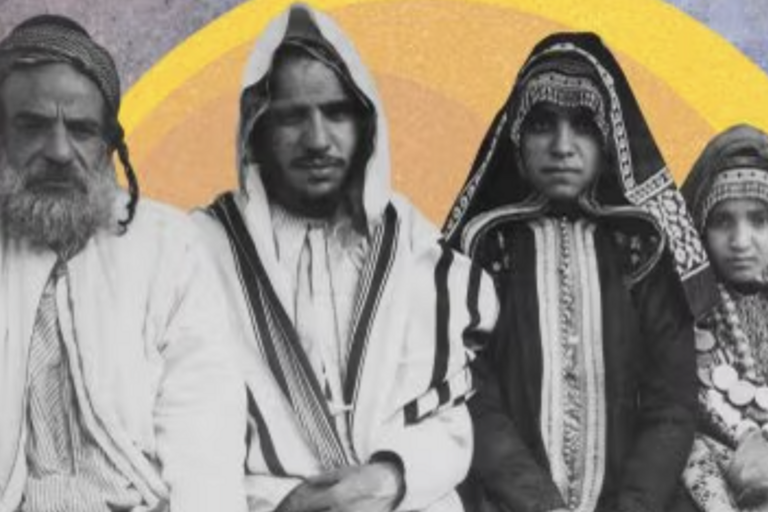
Mizrahim in Israel
Professor Yifat Moas
While Jews are often imagined as having European roots, a significant portion of Israel’s Jewish population descends from once-thriving communities in Arab and Islamic countries. Their culture, and the ethnic relations between Mizrahi Jews (i.e., Jews of Middle Eastern and North African origin) and Ashkenazi Jews (with roots in Europe), have fundamentally shaped Israeli society. This course explores the history, culture, and evolving identity of Mizrahi Jews—from their historical experience in Arab and Islamic lands, through their immigration and struggles in Israel, to their cultural revival and growing political influence. These historical and cultural dynamics offer insights into the diverse forces that have shaped Israeli society, both past and present.
Spring 2025 Courses

Comparative Constitutional Law: The Case of Israel
Professor Masua Sagiv
This course will provide an introduction to constitutional law using Israel as a case study. Topics include: Constitutionalism and judicial review, state neutrality and self-determination, minority rights, state and religion, Human Rights Law, the concept of “defensive democracy" and ban of non-democratic political parties, legal aspects of the fight on terror, freedom of expression, equality and anti-discrimination, social rights, and constitutional limitations on privatization.

Modern Urbanism: From Antiquities to New Towns, Israel/Palestine as a Case Study
Professor Noah (Esther) Hysler Rubin
The "White City" of Tel Aviv has been recognized as a UNESCO World Heritage Site for its exceptional representation of the Modern Movement in architecture, set within a unique cultural context. Founded in 1909 beside the ancient city of Jaffa, Tel Aviv is a striking example of Israel/Palestine's modern urban transformation—one that has dramatically reshaped its landscape over the past 150 years. In this course, we will engage with a wide range of primary and secondary sources—maps, plans, photographs, texts, and films—produced in Israel/Palestine over the past 150 years to explore local cities as spatial laboratories that reflect the evolving relationship between society and space in modern times. We will examine how development intersects with tradition, as well as the contrasting influences of East and West, by engaging with a variety of modernisms and urbanisms: Palestinian, Ottoman, British, and Israeli.

Literature, Psychoanalysis and Human Relations
Professor Yael Segalovitz
This course examines Hebrew literature’s liminal status through a psychoanalytic lens, focusing particularly on the psychoanalytic school of object relations and its conception of intersubjectivity—the understanding that neither people nor texts exist as autonomous, self-sufficient entities, but rather in perpetual relation to others. We will explore the inter-relationality between Hebrew and its historical and contemporary linguistic encounters, from its ancient dialogue with Aramaic to its modern interactions with Yiddish, Arabic, and English, as well as its self-positioning between diaspora and homeland, exile and return, margins and center.

Game Theory, Law, and Politics
Professor Adi Ayal
We will focus on social interaction in private and political life, with special emphasis on how laws and social norms shape our interaction. We’ll separate between methods of devising policy, and methods of devising ‘rules of the game’, such as representation, voting mechanisms, separation of powers, speech governance, and the like. A special emphasis will be placed on interactive learning through participating in games (both online and in-class) and discussion of the dynamics of decision-making present within each game.Towards this purpose, students will be asked to register to a course-specific website through which problem sets will be posted. Participation in games should facilitate learning – both in pushing students to tackle strategic questions within each game, and in requiring thought as to real-life situations in which similar dynamics arise. Students will be encouraged to tease out how people of opposing views might interpret and answer similar questions differently. Finally, students will be asked to devise conversational norms that would allow productive discussion of contentious issues they are familiar with. We’ll stress the difficulty of respecting opposing views and life experiences, while debating the issues and deepening understanding.

Religion and Spirituality in Education: Israeli and American Cases
Professor Hanan Alexander
This course will examine the roles of religion and spirituality in education from the perspective of liberal democratic society in two paradigm cases—Israel and the United States. It will review similarities and differences in the ways each school system conceives and practices such notions as secular and religious, initiation and indoctrination, diversity and inclusion, and public and private. For example, public schools do not offer religious instruction in the United States, due to the constitutional separation of religion and state, whereas religious schools receive state funding in Israel, as they do in many other countries that require no such separation. The course will also consider critiques of these concepts and practices based on gender, race, class, nationality, language, and the search for meaning, as well as similarities and differences between the roles of religious affiliation and nationalism and the influence of extremism in each educational system.

Introduction to Modern Jewish Thought: Faith, Culture, and Education
Professor Hanan Alexander
Jewish thought is a field of Jewish studies that analyzes the themes of Jewish tradition, culture, community, and education throughout the ages from a conceptual point of view. The field often deals with connections, parallels, influences, and tensions between Jewish ideas and those of the wider world through studies of Jewish philosophy, theology, and mysticism. Key topics that are considered in this field include the existence and nature of God, the rationale for religious observance, the purpose of the Jewish people, the demands of Jewish ethics, the connection between Israel and the Diaspora, the authority of revelation, the relation between faith and reason, and the transmission of Jewish culture across the generations. This course is an introduction to the field of Jewish thought in the modern period and its implications for the organizations of contemporary Jewish life--agencies, synagogues, schools, and other educational institutions--in both the Diaspora and the state of Israel.

Gender, Religion, and Law: The Case of Israel
Professor Masua Sagiv
The course will explore the intersection of gender, religion, and law in Israel, as manifested in social movement activism through law and society. Incorporating existing law with current discourse and issues around the suggested legal reforms and the fragility of Israeli democracy, the course will illustrate and reflect upon different strategies and spheres for promoting social change, by examining core issues involving gender, religion and law in Israel: religious marriage and divorce, gender equality in the religious establishment, free exercise of religion (at the Western Wall and Temple Mount), and gender segregation in public places and in academia. Spheres of activism to be covered include parliament, state courts, alternative private initiatives and courts, and social protests.

Introduction to Comparative Literature: Crossing Borders, or, How to Translate Hebrew Literature
Professor Yael Segalovitz
This course engages these complex questions, using Hebrew Literature and its translations into English as our primary lens. We'll explore the nature of translation by following the same Hebrew text in different English forms, by reading translators' reflections, by unpacking theoretical texts on translation, by analyzing works by Palestinian writers that navigate the spaces between languages and cultures, and through hands-on experiences with “translation” between different registers of English.

Learning from Jerusalem: Society and Space in a Shared City
Professor Noah Hysler Rubin
This seminar will explore the urban design of Jerusalem as a shared space: a sacred site and a national emblem for Jews, Christians, and Muslims. It will rely on the reciprocal relationship between society and space, i.e., how different cultures produce different urban settings. We will explore how a city reflects its living societies and examine the tools and tactics different societies employ to shape their living spaces through urban design, architecture, and urban planning. Furthermore, we will ask: What does the shape of a city reveal about space and urban community? How does the urban landscape transmit hidden meanings? Finally, we will ask what happens when society changes, bringing with it its goals and means of design, and explore changes to the urban landscape that occur when cultures change and, with them, values, notions of holiness, and spatial design.

In Search of Lost Time: Memory in Legal Principle and Practice
Professor Daniel Levy
Human memory plays a key role in legal thought, institutions, and procedures. In a wide range of circumstances – evaluating the reliability of testimony, appreciating challenges to judges and jurors in learning and retaining information presented during a trial, assessing intent and culpability for plagiarism, or considering the admissibility of a plaintiff’s repressed memories – assumptions about the nature of memory play a vital role. For each topic, the relevant basic cognitive psychology and neuroscience information will be introduced in non-specialist terms. We will then consider the implications of those insights for philosophical attitudes, legal processes, and societal institutions, including memory in restorative justice, and collective memory in public spaces and monuments.

Israel: Politics and Society
Professor Eran Kaplan
Lectures dedicated to the craft of research and writing will be interspersed with lectures about theoretical and empirical issues relating to the history and contemporary politics of Israel. We will discuss the formation of the state, its geography and history, its political system, and its demographics. Several sessions will be dedicated to Israel’s social and political challenges, to economic opportunities and obstacles, to U.S.-Israel relations, and to the relationship between anti-Semitism and anti-Zionism. The Arab-Israeli conflict is not a focus of this class (it is a focus of another class of mine, PS124B, “War in the Middle East”) but students are free to address topics of international and national security in their papers for this class if they wish.

History of Modern Israel: From the Emergence of Zionism to Our Time
Professor Ethan Katz
The class explores the history of the Zionist movement and the State of Israel in all its complexity and contradictions. What is Zionism? What are its roots? Is it a liberation movement? A religious cause? A colonial ideology? A set of state policies? And what is the relationship between Zionism and the modern State of Israel? How do Zionism and Israel look different when considered from the standpoint of Jewish, Palestinian, European, or Middle Eastern history? Exploring Zionism and Israel from its roots in the nineteenth century to the present, this class offers in-depth knowledge and discussion on all of these topics and more.
